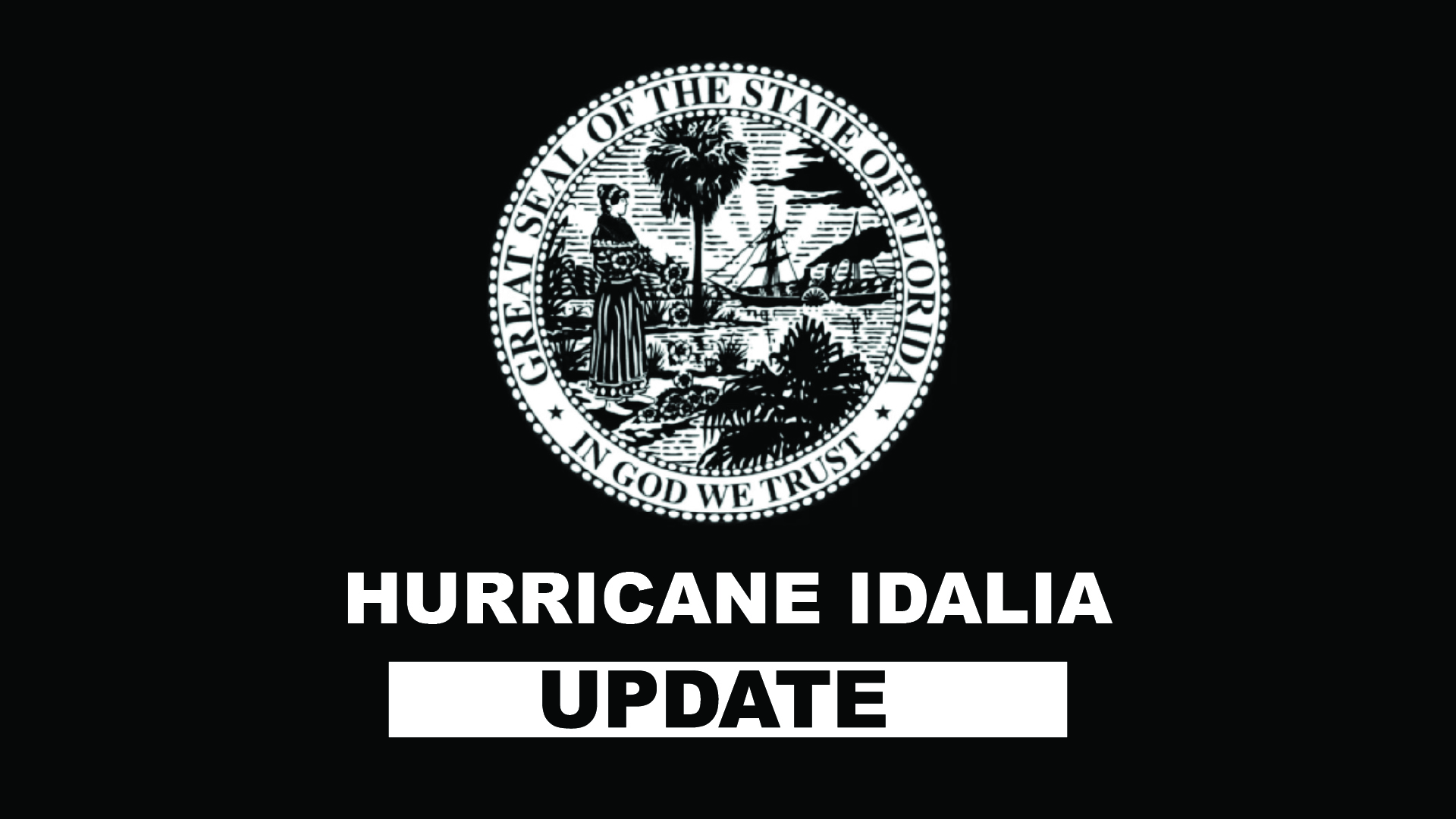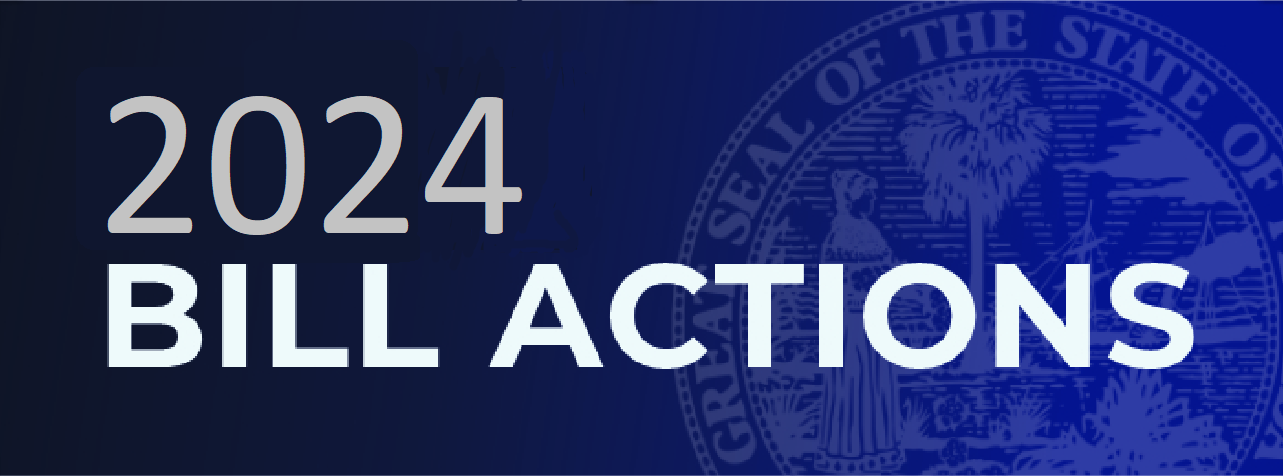Tallahassee, Fla. – Today, First Lady Casey DeSantis reflected on the administration’s major mental health accomplishments achieved in 2020. From the beginning of the administration, First Lady DeSantis has prioritized mental health and substance abuse awareness, crafting bold initiatives, raising the bar for all involved in policymaking related to the continuum of care and leveraging resources to help those struggling.
“While we have encountered many unforeseen challenges this year, the Governor and I remain committed to serving the people of Florida by putting mental and emotional health front and center of both disaster response and public health policy,” said First Lady Casey DeSantis. “To that end, the Governor increased Florida’s Mental Health Assistance Allocation by $25 million, for a total of $100 million, to ensure schools are equipped with the resources to provide meaningful help. Additionally, the Governor recently announced $23 million in federal CARES dollars to reinforce Florida’s mental health services system, further allowing Florida’s Department of Children and Families to provide mental health and substance abuse treatment for Floridians in need.
“Through my Hope for Healing initiative, our collaborative efforts with government, community and private-sector partners have worked to maximize resources while holding ourselves accountable and driving meaningful outcomes. I look forward to major announcements in the New Year as we continue to address the emotional well-being of Floridians, especially in light of this pandemic.”
First Lady DeSantis’ Hope for Healing Florida Initiative
Since 2019, First Lady DeSantis’ Hope for Healing initiative focuses on maximizing resources to better serve Floridians through local collaboration to identify and support evidence-based best practices. Hope for Healing reaches beyond government resources by bolstering partnerships with the private sector, faith-based groups and other stakeholders to reach those who need assistance and support.
Throughout the year, in collaboration with Governor and First Lady DeSantis, many state agencies joined forces to provide and enhance mental health resources to Florida families including for first responders and healthcare workers as a central part of the state’s response to the COVID-19 pandemic. As the Hope for Healing Initiative continues to grow, First Lady DeSantis will continue to advocate for Floridians and their families to overcome mental and emotional health challenges to achieve their overall well-being.
Supporting Student Resiliency and Wellbeing Through the Department of Education
Fundamental components of Florida’s Hope for Healing initiative are facilitated through key partnerships with the Florida Department of Education, including, H.O.P.E. Innovators, Hope Ambassadors and “The Facts. Your Future”. H.O.P.E. Innovators aims to develop innovative ways to connect Florida students and their families with mental health information and resources. Hope Ambassadors is comprised of student volunteers who work with their peers to foster an environment of kindness, compassion and understanding within their own schools. “The Facts. Your Future”, housed under Hope for Healing, aims to provide Florida’s youth with the facts surrounding the negative effects of substance abuse.
In addition to these ongoing efforts, the First Lady partnered with the Florida Department of Education to help as many families as possible and children in a remote learning setting to pursue counseling through virtual means. In September, Governor and First Lady DeSantis announced the distribution of a $2 million grant made available through the Governor’s Emergency Education Relief (GEER) fund to eighteen rural school districts to equip students with enhanced access to local school and community-based mental health resources.
Further, First Lady DeSantis announced two new key partnerships in October. The Department of Education, in collaboration with the Department of Children and Families, provided nearly 1,000 technology devices to be distributed to foster children in Florida to combat the obstacles of educational stabilities. A public-private partnership with T-Mobile will provide more than 600,000 Florida families with free access to 100GB of internet per year for the next five years, allowing students to supplement their work within the classroom at home for better growth in education.
Additionally, First Lady DeSantis announced that counties in Northwest Florida impacted by Hurricane Michael would receive an additional $5.2 million to build off of existing mental health services to enable Florida’s families to have a smooth transition back to work and school.
“First Lady Casey DeSantis has spent the entire year fighting for the well-being of all Florida’s children and students. She continued, through these unprecedented times, to be laser-focused in her mission to help all children become resilient and persevere through any of life’s challenges,” said Commissioner Richard Corcoran. “Her work has bolstered student’s long-term resiliency and established better cross-agency coordination. I applaud her hard work, and look forward to our continued collaboration to ensure all Florida students receive a world-class education.”
Bolstering Mental Health and Substance Abuse Services Through the Department of Children and Families
In March, First Lady DeSantis announced the Florida Department of Children and Families (DCF) awarded Gadsden County a $1.2 million-dollar, three-year grant to establish the Criminal Justice Diversion Project in collaboration with Florida A&M University (FAMU). Earlier this year, DCF received a $1.9 million emergency grant to combat behavioral mental health disorders produced and exacerbated by the COVID-19 pandemic.
First Lady DeSantis and DCF announced that nearly $5 million from the Federal Crisis Counseling Program would be distributed. This funding will provide crisis counseling services through Florida’s network of 2-1-1 crisis helplines, assisting individuals in need of mental or behavioral health counseling and referrals. DCF is working with federal partners to set aside a portion of this funding to be used for peer-to-peer counseling services for Florida’s first responders.
DCF also enacted flexibility among their managing entities to utilize telehealth services and consequently led to a 33% increase in use since February. By employing telehealth services during the pandemic, Floridians were able to decrease the time to receive health care from an average of seven days to two days.
In October, the Governor and First Lady announced a $5 million grant the state of Florida received to create a new pilot program, Support to Communities: Fostering Opioid Recovery through Workforce Development. The Governor and First Lady also recently announced $23 million to reinforce Florida’s mental health services system, further allowing DCF to provide mental health and substance abuse treatment for Floridians in need.
“It’s truly a privilege to work alongside the First Lady – a fierce advocate and innovator in the mental health space,” said DCF Secretary Chad Poppell. “If the achievements of 2020 are any indication of what we can accomplish in 2021, Florida is going to continue seeing significant progress toward our goal of ensuring all Floridians have easy access to the services and support they need to lead healthy, happy, and productive lives.”
Providing Mental Health Services to Florida Seniors Through the Department of Elder Affairs
During the pandemic, the First Lady and Florida Department of Elder Affairs (DOEA) worked tirelessly to provide high-quality mental health care services while protecting our most vulnerable residents with tools to combat the effects of social isolation, including Project: VITAL (Virtual Inclusive Technology for All), Therapeutic Robotic Pets and MP3 players. Project: VITAL, used primarily by nursing homes and assisted living facilities, allowed residents to virtually connect with their families and loved ones to help contest the emotions of social isolation and depression. Over 4,500 robotic pets were distributed to Florida seniors and adults living with Alzheimer’s disease and related dementia (ADRD), in order to increase engagement and deter from stress caused by the pandemic. In a partnership between the DOEA and the Florida Alzheimer’s Association, over one thousand MP3 players were given to homebound older adults, nursing homes and assisted living facilities residents to provide joy and to alleviate social isolation by using the gift of music.
In August, Governor and First Lady DeSantis joined DOEA to launch an online survey tool for self-assessment and self-behavior scores in response to the COVID-19 pandemic, providing a way for the administration to continue to protect the vulnerable while giving Floridians the ability to assess their own choices and responses to the pandemic.
“Health risks associated with social isolation and loneliness, especially for seniors, are similar to the adverse effects of smoking and obesity,” said Department of Elder Affairs Secretary Richard Prudom. “However, we know that health outcomes in older adults may be improved by promoting safe social engagement and helping older Floridians maintain interpersonal relationships. Our newest programs and initiatives have focused on improving mental health through connection, inclusion, and increased support through interactive services. In fact, Project: VITAL in nursing homes and assisted living facilities has been so beneficial to older adults that Project: VITAL at Home is now being launched. We want to make sure that no senior feels alone.”
Promoting Access to Telehealth in Florida’s Medicaid Program
To provide greater flexibility to those seeking care during the COVID-19 pandemic, the Agency for Health Care Administration collaborated with First Lady Casey DeSantis to find ways to maintain access to mental health tools and services for Medicaid recipients. By expanding coverage of mental health resources to telemedicine, Medicaid recipients were able to build off of the care they had been already receiving. By waiving prior authorization requirements, the Agency allowed health care providers to swiftly grant care to those without waiting for approval.
“Governor and First Lady DeSantis understand that mental health services are a critical component in the overall health of the Floridians who utilize these services, especially as many individuals experienced difficult times due to the COVID-19 pandemic,” said Agency for Health Care Administration Acting Secretary Shevaun Harris. “Their leadership allowed our agency to ensure that Florida Medicaid recipients could continue to receive these services seamlessly and without delay.”
Increasing Accessibility to Mental Health and Substance Abuse Care
In partnership with the Governor and First Lady, the Florida Division of Emergency Management appointed the State’s first Recovery Mental Health Coordinator, Darcy Abbott, and was able to take decisive action to strengthen mental health initiatives statewide. These efforts included coordinating weekly conference calls for the Florida Behavioral Health Association, working with federal partners to expand on best practices to act in response to mental health conditions and coordinating with a multitude of representatives including but not limited to state agencies, community partners and faith-based organizations.
In January, First Lady DeSantis, in partnership with FDEM, announced an additional $690,000 to expand Crisis Counseling services within Northwest Florida. Bay, Calhoun, Gulf, Holmes, Jackson, and Washington counties received a 90-day extension for crisis counseling services amongst other resources through the end of the school year. The Crisis Counseling program facilitated through Project H.O.P.E works to provide mental health services at a variety of locations including libraries, and childcare centers.
“Florida’s First Lady recognizes how important it is to provide mental health resources for those impacted by disasters, especially in a year like 2020. At the Division, we have hired the first disaster mental health coordinator in the nation, and we are making sure Florida sets an example nationally for prioritizing the wellbeing of our residents,” said Director of Emergency Management Jared Moskowitz. “I also didn’t want to take my eye off of the employees at the division, who have been activated since March – the longest activation in the division’s history. We know animal therapy is a very effective mental health tool, which is why I’ve allowed dogs in the EOC to support these men and women who have made so many sacrifices for our state.”
Bringing Light to Key Issues Through the Florida Children & Youth Cabinet
First Lady DeSantis oversees the Children & Youth Cabinet as its Chair and leads in developing a strategic plan of best practices to effect meaningful change in the lives of Florida’s youth. Having representation from various state agencies, the Cabinet generates interdepartmental collaboration as well as program and policy implementation to assist and support Florida’s youth. This year, the Cabinet convened to hear critical updates on the impact of isolation on our youth and the significant part teachers play as mandatory reporters of child abuse.
In her role as Chair, First Lady DeSantis was instrumental in the passage of Senate Bill 1326, the Department of Children and Families (DCF) Accountability Act. Working with DCF and legislative leaders, the First Lady highlighted the need to reinstate a system of accountability within Florida’s child welfare system and restore the department’s role in driving performance internally, as well as among all community-based care (CBC) lead agencies and managing entity providers.
In an OpEd published during the legislative session in February, First Lady DeSantis argued, “Ensuring accountability and transparency over governmental entities, and those with whom they do business, is imperative and frankly should be a core function of any government.”
In June, Governor DeSantis signed the DCF Accountability Act into law, which established the Office of Quality Assurance within the department, responsible for developing and implementing a measurable grading scheme to monitor both internal programs and contracted vendors throughout the state.
This legislation also encourages representatives from local churches and community organizations to engage in the state’s child welfare system and advise DCF on outreach efforts. With their extensive networks, grassroots perspective, and innate compassion, these individuals have an unparalleled ability to support initiatives like foster parent recruitment.
Finally, the act established policies and programs to mitigate and ultimately prevent the impact of employee stress and burnout.
Continuing to Raise Awareness Through Hope for Healing
Through her Hope for Healing Florida initiative, First Lady Casey DeSantis continues to make meaningful progress to support the mental health, wellbeing and resiliency of Floridians. For more information about Florida’s coordinated mental health initiative, Hope for Healing, please visit https://hopeforhealingfl.com/.
###
.jpg)






.jpg)
